
Kód: 04534237
Apophasis and Pseudonymity in Dionysius the Areopagite
Autor Charles M. Stang
A PDF version of this book is available for free in open access via www.oup.com/uk as well as the OAPEN Library platform, www.oapen.org. It has been made available under a Creative Commons Attribution-Non Commercial-No Derivative ... celý popis
- Jazyk:
 Angličtina
Angličtina - Vazba: Pevná
- Počet stran: 246
Nakladatelství: Oxford University Press, 2012
- Více informací o knize

Mohlo by se vám také líbit
-

Order and Innovation in the Middle Ages
3025 Kč -
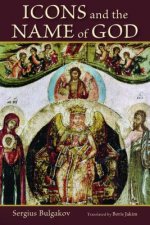
Icons and the Name of God
713 Kč -

Oxford Companion to Twentieth-Century Literature in English
6758 Kč -
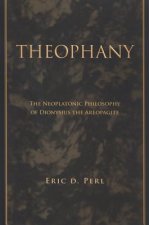
Theophany
3136 Kč -

Brief History of Black Holes
397 Kč -

Before Your Memory Fades
486 Kč -

Heat 2
399 Kč -

Songs from Prudentius
897 Kč -
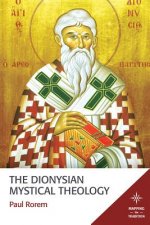
Dionysian Mystical Theology
1270 Kč -
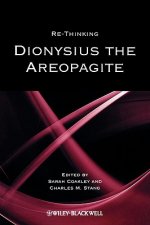
Rethinking Dionysius the Areopagite
1044 Kč -
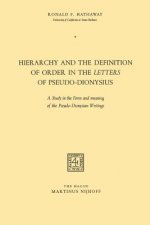
Hierarchy and the Definition of Order in the Letters of Pseudo-Dionysius
3313 Kč -
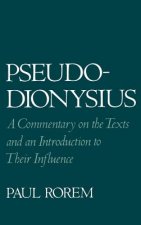
Pseudo-Dionysius
7387 Kč -

Carmen
399 Kč -

Channeling Cultures
1458 Kč
Darujte tuto knihu ještě dnes
- Objednejte knihu a zvolte Zaslat jako dárek.
- Obratem obdržíte darovací poukaz na knihu, který můžete ihned předat obdarovanému.
- Knihu zašleme na adresu obdarovaného, o nic se nestaráte.
Více informací o knize Apophasis and Pseudonymity in Dionysius the Areopagite
Nákupem získáte 523 bodů
 Anotace knihy
Anotace knihy
A PDF version of this book is available for free in open access via www.oup.com/uk as well as the OAPEN Library platform, www.oapen.org. It has been made available under a Creative Commons Attribution-Non Commercial-No Derivatives 3.0 license and is part of the OAPEN-UK research project. This book examines the writings of an early sixth-century Christian mystical theologian who wrote under the name of a convert of the apostle Paul, Dionysius the Areopagite. This 'Pseudo'-Dionysius is famous for articulating a mystical theology in two parts: a sacramental and liturgical mysticism embedded in the context of celestial and ecclesiastical hierarchies, and an austere, contemplative regimen in which one progressively negates the divine names in hopes of soliciting union with the 'unknown God' or 'God beyond being.' Charles M. Stang argues that the pseudonym and the influence of Paul together constitute the best interpretive lens for understanding the Corpus Dionysiacum [CD]. Stang demonstrates how Paul animates the entire corpus, and shows that the influence of Paul illuminates such central themes of the CD as hierarchy, theurgy, deification, Christology, affirmation (kataphasis) and negation (apophasis), dissimilar similarities, and unknowing. Most importantly, Paul serves as a fulcrum for the expression of a new theological anthropology, an 'apophatic anthropology.' Dionysius figures Paul as the premier apostolic witness to this apophatic anthropology, as the ecstatic lover of the divine who confesses to the rupture of his self and the indwelling of the divine in Gal 2:20: 'it is no longer I who live, but Christ who lives in me.' Building on this notion of apophatic anthropology, the book forwards an explanation for why this sixth-century author chose to write under an apostolic pseudonym. Stang argues that the very practice of pseudonymous writing itself serves as an ecstatic devotional exercise whereby the writer becomes split in two and thereby open to the indwelling of the divine. Pseudonymity is on this interpretation integral and internal to the aims of the wider mystical enterprise. Thus this book aims to question the distinction between 'theory' and 'practice' by demonstrating that negative theology-often figured as a speculative and rarefied theory regarding the transcendence of God-is in fact best understood as a kind of asceticism, a devotional practice aiming for the total transformation of the Christian subject.
 Parametry knihy
Parametry knihy
Zařazení knihy Knihy v angličtině Humanities Religion & beliefs Christianity
5225 Kč
- Plný název: Apophasis and Pseudonymity in Dionysius the Areopagite
- Podnázev: "No Longer I"
- Autor: Charles M. Stang
- Jazyk:
 Angličtina
Angličtina - Vazba: Pevná
- Počet stran: 246
- EAN: 9780199640423
- ISBN: 0199640424
- ID: 04534237
- Nakladatelství: Oxford University Press
- Hmotnost: 446 g
- Rozměry: 223 × 143 × 19 mm
- Datum vydání: 09. February 2012
Oblíbené z jiného soudku
-
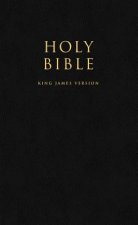
The Holy Bible - King James Version
254 Kč -
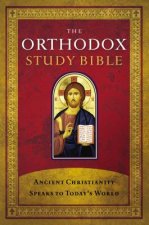
Orthodox Study Bible, Hardcover
1148 Kč -

Prayer Book
667 Kč -

Yoga of Jesus
306 Kč -

NRSV, Catholic Bible, Gift Edition, Leathersoft, White, Comfort Print
716 Kč -

KJV Holy Bible, Personal Size Giant Print Reference Bible, Burgundy Leather-Look, 43,000 Cross References, Red Letter, Comfort Print: King James Versi
389 Kč -

Jesus Calling, Pink Leathersoft, with Scripture References
417 Kč -

Feeling is the Secret
171 Kč -

KJV, Value Thinline Bible, Compact, Leathersoft, Brown, Red Letter, Comfort Print
343 Kč -

KJV, Holy Bible, Larger Print, Paperback, Comfort Print
176 Kč -

Holy Bible
675 Kč -

Second Coming of Christ
1482 Kč -
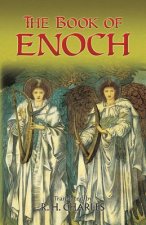
Book of Enoch
216 Kč -

NKJV, Lighting the Way Home Family Bible, Hardcover, Red Letter Edition
1148 Kč -
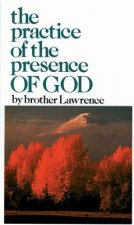
Practice and Presence of God
188 Kč -

HOLY BIBLE: King James Version (KJV) White Compact Christening Edition
464 Kč -

Secrets of a Prayer Warrior
235 Kč -

Disciplines of a Godly Man
383 Kč -

Message Deluxe Gift Bible, Brown
371 Kč -

Give Me an Answer
437 Kč -

Luther Bible of 1534
1338 Kč -
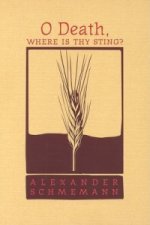
O Death, Where is Thy Sting?
390 Kč -

NRSV, Catholic Bible, Gift Edition, Leathersoft, Teal, Comfort Print
681 Kč -

Case for Christ
223 Kč -

Jesus Calling, Large Text Brown Leathersoft, with Full Scriptures
634 Kč -

How We Love: Discover your Love Style, Enhance your Marriage (Expanded Edition)
402 Kč -
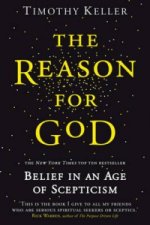
Reason for God
306 Kč -

NKJV, Checkbook Bible, Compact, Bonded Leather, Black, Wallet Style, Red Letter
702 Kč -

KJV Economy Bible
165 Kč -

Bible: Authorized King James Version
380 Kč -

NLT Premium Gift Bible, Purple
448 Kč -

CSB Compact Bible, Brown LeatherTouch, Value Edition
320 Kč -

Angels
455 Kč -

Crime and Punishment
484 Kč -

Confessions
236 Kč -

Hillbilly Volume 2
429 Kč -

Embraced
478 Kč -
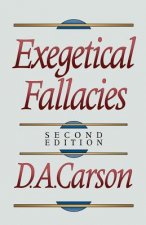
Exegetical Fallacies
455 Kč -
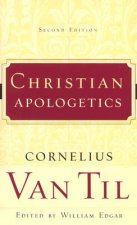
Christian Apologetics
371 Kč -

Foundation Study Bible-KJV
702 Kč -

Supernatural
370 Kč -
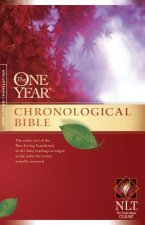
NLT One Year Chronological Bible, The
444 Kč -

ESV Vest Pocket New Testament with Psalms and Proverbs
222 Kč -

Real Kosher Jesus
338 Kč -

Gravity and Grace
574 Kč -

Lacemaker
503 Kč -
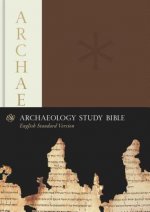
ESV Archaeology Study Bible
1332 Kč -
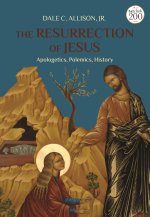
Resurrection of Jesus
974 Kč -

Holy Bible: English Standard Version (ESV) Anglicised Black Gift and Award edition
303 Kč
Osobní odběr Praha, Brno a 12903 dalších
Copyright ©2008-24 nejlevnejsi-knihy.cz Všechna práva vyhrazenaSoukromíCookies



 Vrácení do měsíce
Vrácení do měsíce 571 999 099 (8-15.30h)
571 999 099 (8-15.30h)